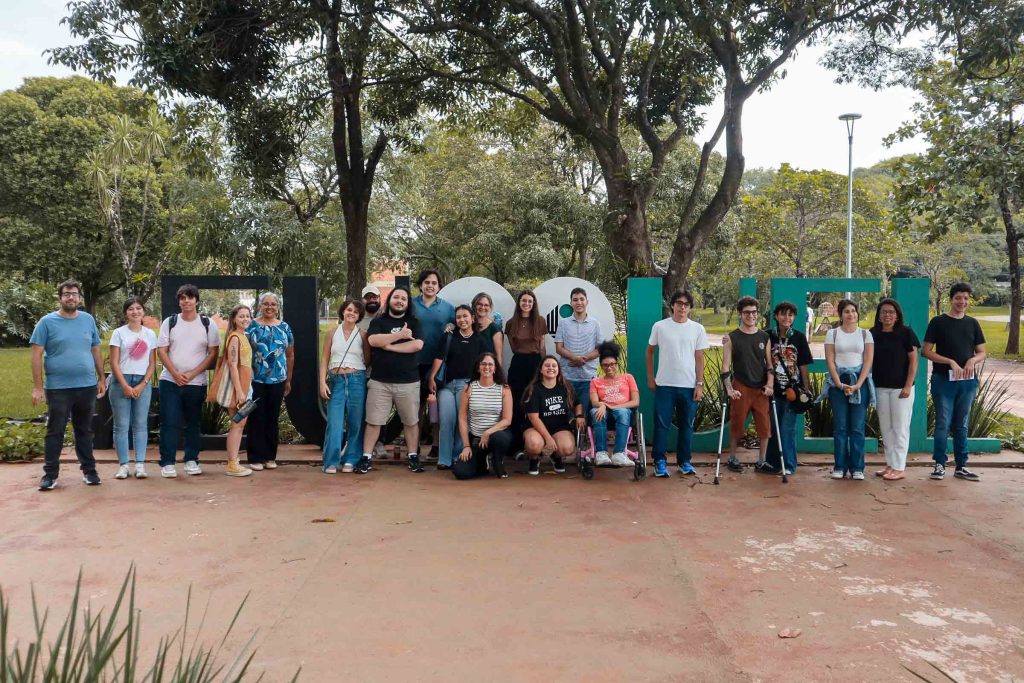[EN] Researchers from UEL and PUC evaluate the effects of toluene in gas station attendants’ organism.
[EN] Researchers from UEL and PUC evaluate the effects of toluene in gas station attendants’ organism.
Texto originalmente publicado no Jornal Notícia, edição nº 1415 de novembro de 2022. Traduzido pela equipe do Paraná Fala Inglês.Among chemists and other scientists, it is known as methylbenzene. Its most popular name is toluene, a colorless and volatile aromatic substance, widely used as a solvent in paints, glues, detergents, medicines, and fuels. It is neurotoxic, meaning that the exposure to this solvent may affect the organism, especially the nervous system. Elevated levels of the compound may cause lack of concentration, fatigue, loss of appetite, vision, smell, and hearing problems. These symptoms disappear when the exposure ceases. However, in cases of overexposure, toluene can cause total loss of smell and hearing, seizures, suffocation, and cardiac arrests.
Researchers from Medical, Biochemical Pharmacy, and Chemistry degrees of Londrina State University (UEL), in partnership with researchers from Pontifical Catholic University (PUC), study the exposure, the effects, and ways to prevent problems caused by toluene in gas station attendants in the city of Londrina. The work, “Evaluation and awareness of toluene as a cause of olfactory dysfunction in gas station attendants in Londrina. (“Avaliação e conscientização do tolueno como causador de disfunção olfatória em trabalhadores frentistas de Londrina”), is coordinated by Tiago Severo Peixe (Clinical and Toxicological Analysis Department). The project is innovative and relevant for its purpose to focus on occupational disease and a substance that is widely used by the industry.
“Toluene can be absorbed through the nose, mouth, or even the skin,” explains Professor Tiago. The compound levels in industrialized products are defined, monitored, and controlled by the Ministry of Labor standards (NR-7 and NR-15). To detect it in the human body, a urine test is the most common and efficient method, aiming to detect hippuric acid, a byproduct of metabolized toluene in the body.
The fourth-year medical student, Caroline Badaoui, also a member of the research team, reports that, between 2020 and 2021, the researchers got the commitment of 50 gas station workers with the project, which was not an easy task. Additionally, they recruited another 50 control subjects who were not occupationally exposed to solvents. According to Caroline, the workers were resistant to participating in the research, and many had to be excluded from it due to several factors, such as for being smokers.

The students provided a detailed anamnesis of the gas station employees, writing down a great amount of personal information, making urine tests at the end of each participant´s workday, and applying the UPSIT test. This test was developed at Pennsylvania University and consists of a palette with different smells (just as the one found in cosmetic magazines), and some alternatives one can check to identify each smell. This test is supposed to detect alterations in the sense of smell. Concurrently, a control group, composed of participants who were not exposed to toluene, was equally observed.
Laboratory stage
The laboratory stage of the experiment, that is, the analysis of the collected data was developed by the Chemistry professors and students involved in the project. According to Caroline, there was no alteration in the gas station workers’ sense of smell. However, it is known that each organism can be differently affected by the toluene, as other parts of the body can be harmed.
The preliminary results are positive but should not cause a lack of concern on the subject, according to the researchers, Professor Tiago emphasizes the need for constant monitoring since gas station attendants are exposed to the toluene for many hours a day. This is why work breaks are needed outside the exposure area, as well as the use of personal protective equipment (PPE) and the awareness of the dangers and risks of the substance. This is one of the reasons the project focuses on evaluation and awareness: its two main axes. Caroline attests that the gas stations provide the PPE, but most workers do not use them.
The coordinator states that the project will promote meetings and training sessions to clarify and guide the workers about technical standards, health risks, and prevention. “It will be an educational journey involving labor unions. In a subsequent stage, we may also expand to other substances,” he says.
Tiago Peixe comments that part of the project’s success is because it is multidisciplinary and involves different institutions. He highlights the participation of professors Marco Aurelio Fornazieri (UEL Medical School), Lycio Shinji Watanabe and Alessandra Maffei Monteiro (UEL Chemistry School), the undergraduate researchers Giulia Maria Gagliazzi Lage and Aline Yumi Utsunomiya (UEL Pharmacy School), and Clínica Olfact, the institution responsible for the olfactory evaluation analysis.
Tradução: Jéssica Fortuna. Coordenação institucional do Paraná Fala Inglês (PFI): Fernanda Brener.
Texto original em português: Pesquisadores da UEL e PUC avaliam efeitos do tolueno no organismo de frentistas de postos




